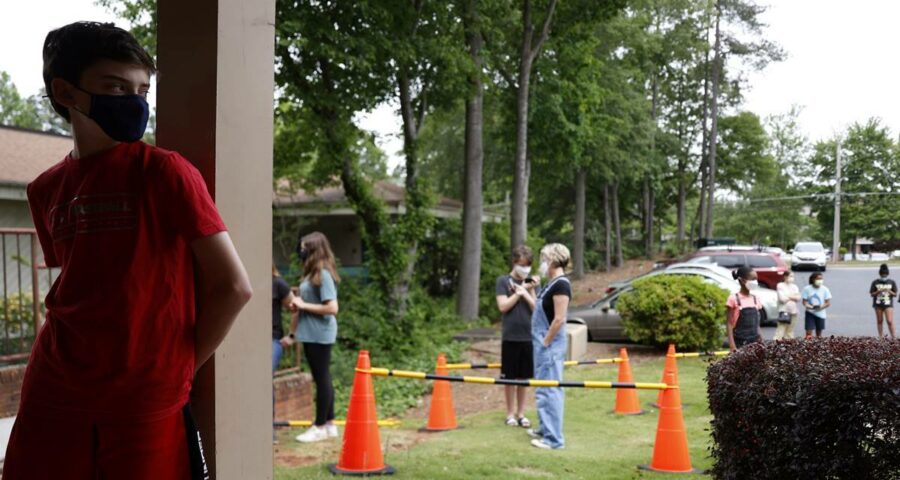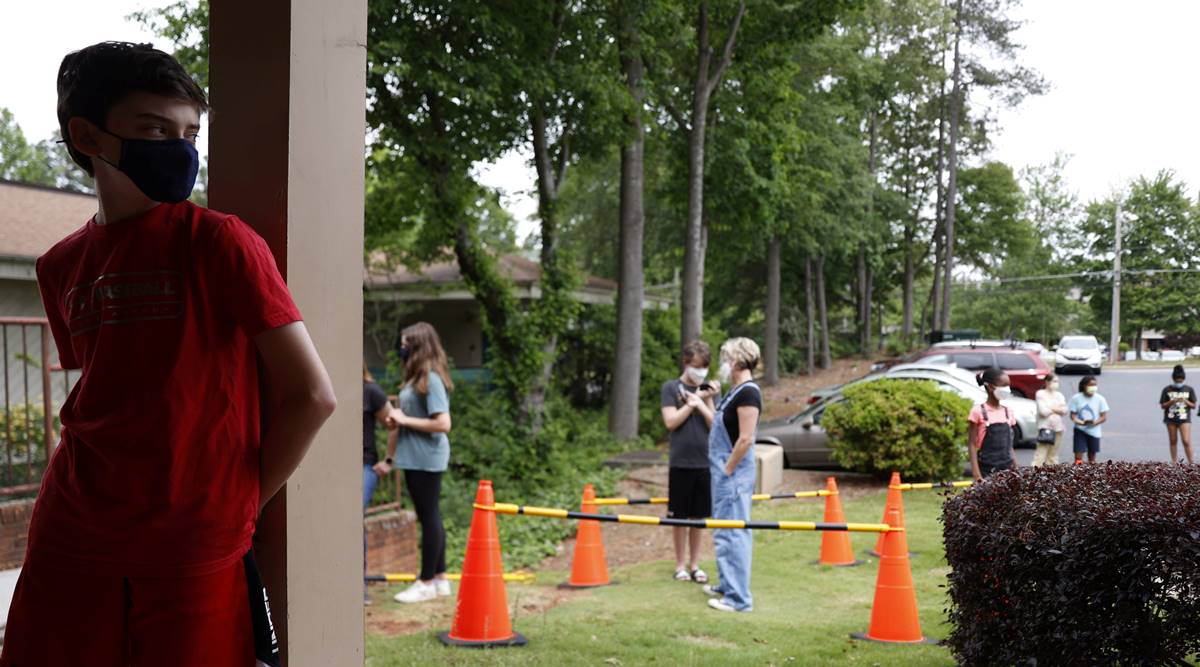The committee will meet on Wednesday and states could begin vaccinating children as soon as Wednesday and Thursday. In California, a state with 2.1 million 12- to 15-year-olds, health officials told reporters they will start offering vaccine appointments on Thursday.
When the state of Georgia made COVID-19 vaccinations available to children as young as 12 on Tuesday, Atlanta residents Jenny and Jeffrey Brower rushed to schedule an appointment for their twin 13-year-old girls.
As Georgians, they were among the lucky ones. Providers in their state, along with those in Delaware and Arkansas, were already offering Pfizer and BioNTech’s vaccine to adolescents aged 12 to 15 – just a day after U.S. regulators authorized it for emergency use in that age group.
Young people in most U.S. states contacted by Reuters would have to wait at least until later in the week.
A spokeswoman for Georgia’s public health agency said it chose to give shots right away to avoid turning young people away and risking them not coming back for the first jab of the two-shot regimen. Delaware also started early to meet demand for shots from young people and their parents, a spokeswoman said.
“Tomorrow isn’t soon enough. I want my kids vaccinated today,” said Jenny Brower. “It’s been vetted up and down, and it’s safe and we need it.
“More than a dozen states surveyed by Reuters – including Texas, Idaho, Arizona, New York, Massachusetts, Illinois and Minnesota – said they would wait for the go-ahead from an advisory committee of the U.S. Centers for Disease Control and Prevention (CDC) before they start administering the vaccine to children under 16.
In Minnesota, providers are permitted to give a vaccine as soon as the U.S. Food and Drug Administration clears it, but a spokesman said it will wait for guidance from a CDC committee, which will likely include information on correct dosing and potential safety concerns.
The committee will meet on Wednesday and states could begin vaccinating children as soon as Wednesday and Thursday. In California, a state with 2.1 million 12- to 15-year-olds, health officials told reporters they will start offering vaccine appointments on Thursday.
They hope to repeat the recent success of expanding vaccines to 16- and 17-year-olds, with more than 30% of them getting at least one jab in less than a month.
‘THRILLED
‘Vaccination of a significant number of adolescent Americans could allow U.S. schools and summer camps to relax masking and social-distancing measures and help hasten a return to something close to normal.
Deborah Saxon, a mother of three in Washington, D.C., is scrambling to vaccinate any of her children who are eligible before they head on July 7 for sleep-away camp in North Carolina.
“I’m thrilled,” said Saxon, 42, a lobbyist and parent of a 14-year-old boy, a girl who turns 12 in early July and an 8-year-old girl.
In an effort to get her children vaccinated as soon as possible, Saxon pre-registered them last week for the vaccine at Children’s National Hospital.
It takes about five weeks from the time the first shot is administered for individuals to reach optimal protection with the two-dose Pfizer/BioNTech vaccine.
It has been available under an emergency use authorization to people as young as 16 in the United States. The companies said they started seeking full approval for their vaccine in people 16 and older last week.
On Monday, U.S. President Joe Biden hailed the expanded FDA authorization as “a promising development in our fight against the virus.
“Most children with COVID-19 only develop mild symptoms or no symptoms at all. However, they are not without risk of becoming seriously ill, and they can still spread the virus to vulnerable people. There have been outbreaks traced to sporting events and other activities for children in the 12- to 15 year-old age range.
Many health officials are concerned that vaccine hesitancy in some adults will be even more pronounced when it comes to their children.
Parents may question the risks versus benefits, given the unknowns about the long-term effect of the vaccines on children’s development and their likelihood of being spared severe illness.
Even so, Jenny Brower, the Atlanta mother, said all teenagers – along with everyone else – should get the vaccine as soon as possible, aside from those with medical conditions that would make it unsafe.
“Everyone needs to get this,” she said. “It’s the only way to stop this pandemic cold.”
Source: Read Full Article


